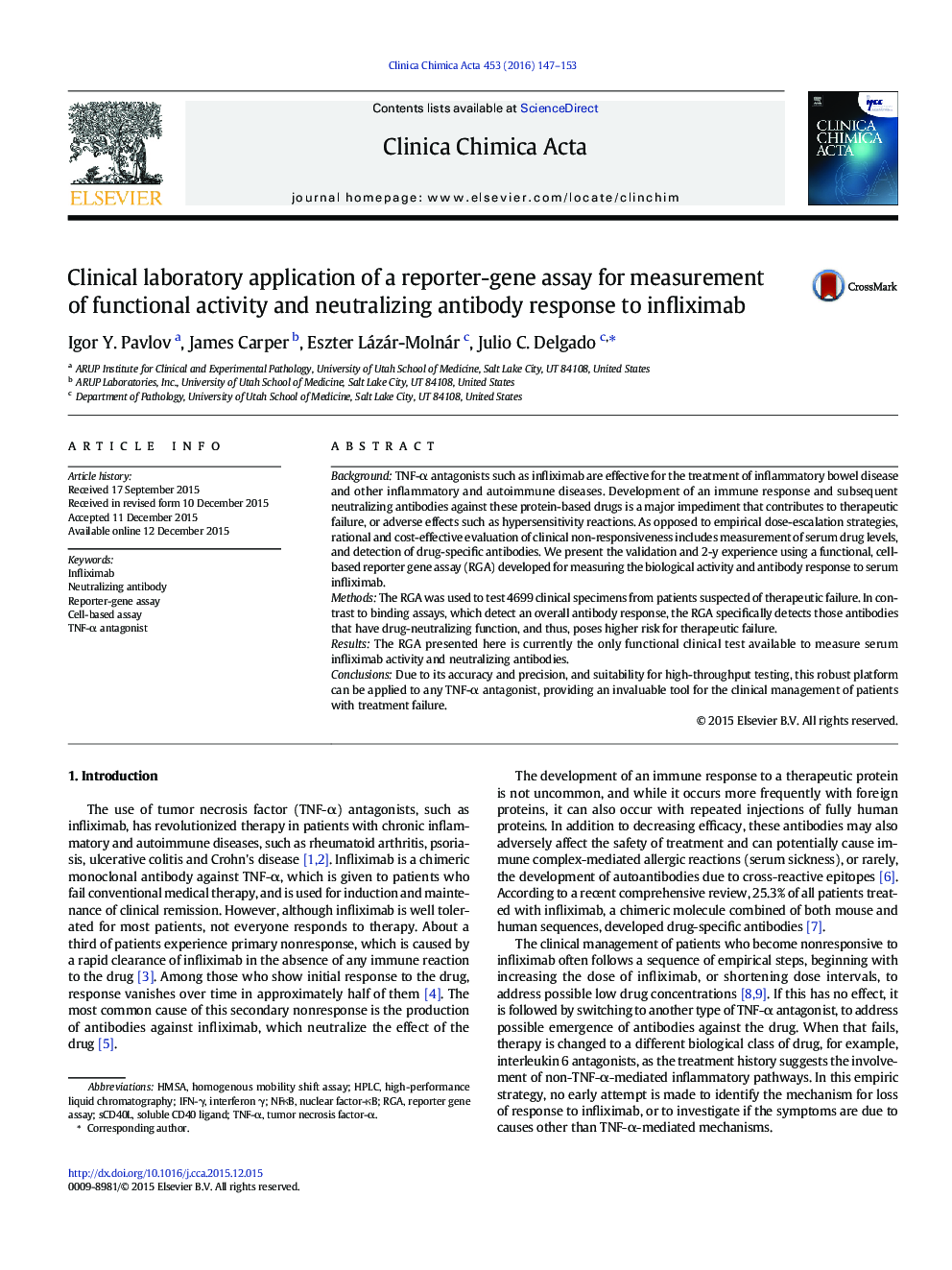| Article ID | Journal | Published Year | Pages | File Type |
|---|---|---|---|---|
| 1965144 | Clinica Chimica Acta | 2016 | 7 Pages |
•TNF-α antagonists are widely used for the treatment of inflammatory and autoimmune diseases.•Immunogenicity of TNF-α inhibitors poses therapeutic challenges and results in clinical non-responsiveness in some patients.•Non-responsive patients should be screened for drug levels, and the presence of drug-specific antibodies.•A cell-based functional reporter gene assay (RGA) is validated and available for clinical use.•The RGA provides a precise and accurate way to measure serum drug activity, and detect drug-specific neutralizing antibodies.
BackgroundTNF-α antagonists such as infliximab are effective for the treatment of inflammatory bowel disease and other inflammatory and autoimmune diseases. Development of an immune response and subsequent neutralizing antibodies against these protein-based drugs is a major impediment that contributes to therapeutic failure, or adverse effects such as hypersensitivity reactions. As opposed to empirical dose-escalation strategies, rational and cost-effective evaluation of clinical non-responsiveness includes measurement of serum drug levels, and detection of drug-specific antibodies. We present the validation and 2-y experience using a functional, cell-based reporter gene assay (RGA) developed for measuring the biological activity and antibody response to serum infliximab.MethodsThe RGA was used to test 4699 clinical specimens from patients suspected of therapeutic failure. In contrast to binding assays, which detect an overall antibody response, the RGA specifically detects those antibodies that have drug-neutralizing function, and thus, poses higher risk for therapeutic failure.ResultsThe RGA presented here is currently the only functional clinical test available to measure serum infliximab activity and neutralizing antibodies.ConclusionsDue to its accuracy and precision, and suitability for high-throughput testing, this robust platform can be applied to any TNF-α antagonist, providing an invaluable tool for the clinical management of patients with treatment failure.
